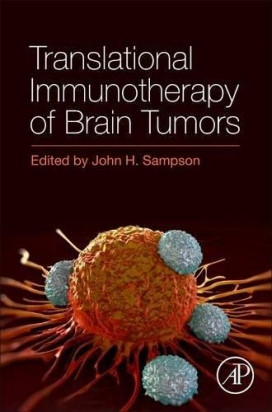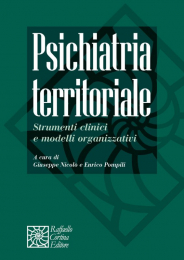Section I. Immunological Features of Brain Tumors
Chapter 1. An Introduction to Immunotherapy in the Treatment of Brain Tumors
-
Introduction
-
The Immune Response
-
Immune Tolerance
-
Unique Aspects of the Central Nervous System Immune Response
-
Cancer Immunotherapies
Chapter 2. Immune Constitution of Patients With Brain Tumors
-
Background and Discovery
-
Current Understanding: Analyzing Systemic Immune Dysfunction
-
Current Understanding: Analyzing the Tumor
-
Clinical Opportunities
-
Conclusion
Chapter 3. The Role of Regulatory T Cells and Indoleamine-2,3-dioxygenase in Brain Tumor Immunosuppression
-
Background and Discovery
-
Origin of Tregs
-
Function of Tregs
-
Tregs in the Cancer Immunity Cycle
-
Tregs and Glioma
-
Tryptophan Catabolism in Immunity and in Cancer
-
IDO1, IDO2, and TDO
-
The AhR
-
Mechanisms of Immune Regulation by the IDO Pathway
-
The IDO Pathway in Cancer and in Glioma
-
Targeting Tregs in Preclinical Model
-
Targeting IDO in Preclinical Models
-
Clinical Trial Data
-
Conclusion
Chapter 4. The Role of Myeloid-Derived Suppressor Cells in Immunosuppression in Brain Tumors
-
Background and Discovery of the Myeloid Cell
-
Preclinical Data: Targeting the MDSC Population
-
Clinical Approaches to Targeting MDSCs
Chapter 5. Tumor-Specific Mutations in Gliomas and Their Implications for Immunotherapy
-
Introduction
-
Mutations as Immunotherapeutic Targets
-
Isocitrate Dehydrogenase 1 Mutations in Gliomas
-
IDH1 Mutations as an Immunotherapeutic Target
-
Preclinical Investigations: IDH1-R132H Peptide Vaccines
-
Clinical Investigations: IDH1-R132H Peptide Vaccines
-
Roadblocks and Future Directions for Targeting IDH1 Mutations
-
Epidermal Growth Factor Receptor and Variant III in Gliomas
-
EGFR Mutations as an Immunotherapeutic Vaccination Target
-
Preclinical Investigations: EGFRvIII Vaccination
-
Clinical Investigations: EGFRvIII Vaccination
-
Roadblocks for Targeting EGFRvIII
-
Histone Mutation Background
-
Histone Mutations in Pediatric Gliomas
-
H3.3 Mutations as an Immunotherapeutic Target
-
Roadblocks and Future Directions for Targeting H3 Mutations
Section II. Studying Brain Tumor Immunotherapy
Chapter 6. Preclinical Immunotherapeutic Animal Models for Brain Tumors
-
Introduction
-
Spontaneous and Experimentally-Induced Autochthonous Brain Tumor Animal Models
-
Syngeneic Transplantation Brain Tumor Models
-
Genetically Engineered Mouse Models
-
Xenograft Models of Glioblastoma
-
Humanized Mouse Models
-
Conclusion
Chapter 7. Imaging Studies in Immunotherapy
-
Clinical Considerations
-
Advanced Imaging Assessments
-
Conclusion
Chapter 8. Immunotherapy Clinical Trials in Neuro-Oncology
-
Introduction
-
Early Immunotherapy
-
Immunotherapy in the 21st Century
-
Checkpoint Inhibitors
-
Therapeutic Cancer Vaccines
-
Chimeric Antigen Receptor T Cells
-
Viral Therapy in Solid Tumors
-
Bispecific T Cell Engagers
-
Immunotherapy Clinical Trial Design in Neuro-Oncology
-
Study Design
-
Assessing the Candidate
-
Assessment of Safety
-
Assessment of Response
Section III. Experimental Brain Tumor Immunotherapies
Chapter 9. Peptide-Specific Vaccines
-
Background and Discovery
-
Preclinical Data and Principles of Peptide Vaccines
-
Clinical Trial Data
-
Wilms Tumor Peptide 1
-
Vaccination Targeting IDH-1R132H
-
Multipeptide Vaccination Regimens
-
Conclusion
Chapter 10. Immunotoxin Therapy for Brain Tumors
-
Introduction
-
History of Immunotoxins
-
Immunotoxins for Brain Tumor Therapy
-
Future Directions
-
Conclusion
Chapter 11. Checkpoint Blockade Immunotherapy for Glioblastoma: Progress and Challenges
-
The Tumor Immune Response and Immune Checkpoint Biology
-
Immune Checkpoints in Malignant Glioma
-
Immune Checkpoint Blockade
-
Feasibility of Checkpoint Blockade for Central Nervous System Malignancies
-
Clinical Progress of Checkpoint Blockade for Glioblastoma
-
Emerging Targets for Checkpoint Blockade
-
On the Horizon: Immunomodulatory Antibodies for T Cell Costimulation
-
Conclusion
Chapter 12. Dendritic Cell Therapy for Brain Tumors
-
Introduction
-
Tumor Microenvironment
-
Dendritic Cells in Immunology
-
Dendritic Cell–Based Vaccine: Current Approaches
-
Antigen Targets
-
Routes of Administration
-
Safety and Complications
-
Immune Response
-
Clinical Response and Survival Benefits
-
Radiologic Findings
-
Clinical Trials
-
Future Directions
-
Conclusion
Chapter 13. Adoptive Immunotherapy Against Brain Tumors
Chapter 14. Chimeric Antigen Receptor Therapy of Brain Tumors
-
Chimeric Antigen Receptors Through the Generations
-
Success of Targeting Hematogenous Malignancies: CD19 Chimeric Antigen Receptors
-
Solid Tumors as a Chimeric Antigen Receptor Target
-
Chimeric Antigen Receptor Therapy for Brain Tumors
-
The Question of Delivery
-
Potential Challenges
-
Future Perspectives




